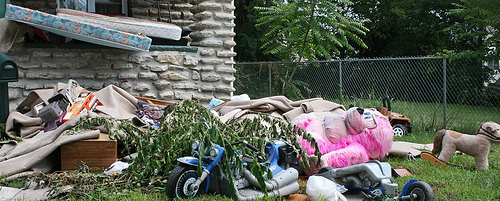The Next Big Problem for Mortgage-paying Home Owners
Mortgages have become a lot easier to get in recent months thanks to a number of economic moves from a number of the big international monetary institutions and improvements in the world economy.
From the UK government’s introduction of 5 percent mortgages to similar changes around the world, it looks like it’s a lot easier to get a home than it was only 12 months ago. In addition, the world economy is picking up, jobs are more plentiful and paying better and things are on the up in a range of ways.
A mortgage however is a big step and one of the largest, if not the largest financial decision a person makes in their life. Taking out a mortgage means a 25 or 30 year commitment – something that often lasts longer than marriages, families and a range of other life changing areas. Of course, as we all know the price we pay back on our mortgage is determined by the rate of interest.


Mortgage Crisis by dustjelly, on Flickr. This work is licensed under a Creative Commons Attribution-NonCommercial-ShareAlike 4.0 International License.
Cheap Money
Currently, this stands at the lowest levels for hundreds of years and has allowed access to cheap money for people across the board. Mortgages like all other credit have also been touched by this and so are at their lowest levels ever. However, it may not stay like this for long.
In fact, Bank of England Governor Mark Carney has said that the bank won’t consider a rate change until unemployment fell below 7 percent. This is expected to happen by late 2016, if not a little beforehand. Of course, this is only the British model; however expect similar changes on a global scale should the world economy pick up as a whole. It would also likely mean the ECB and their US counterparts would also increase rates from the lowest levels ever.

paulbr75 / Pixabay
Repayments
In turn this would mean an increase in the amount of money that people would have to repay on a monthly basis and so would make for less money in people’s pockets at the end of the month. In the worst case scenario it may even mean no money in people’s pockets and the increased likelihood of foreclosure.
This is quite the reality as a matter of fact. The British newspaper The Guardian recently reported that around 13m people in the UK paid for their last Christmas with their credit card. This would signify that a large number of people in the UK are living on their bread line as it is and that an interest increase may push people beyond what’s suitable and what they can pay. This would in turn lead to a raft of foreclosures and mean quick sales. Even though there are more companies who can buy my house than ever before, this would make things even worse and also be in the shadow of a so called recovery.
Whether such an occurrence comes about we will wait and see, Carney has said he may only increase interest should unemployment fall below 7 percent. However, if he does it could cause some notable issues – there’s no doubt about that.

